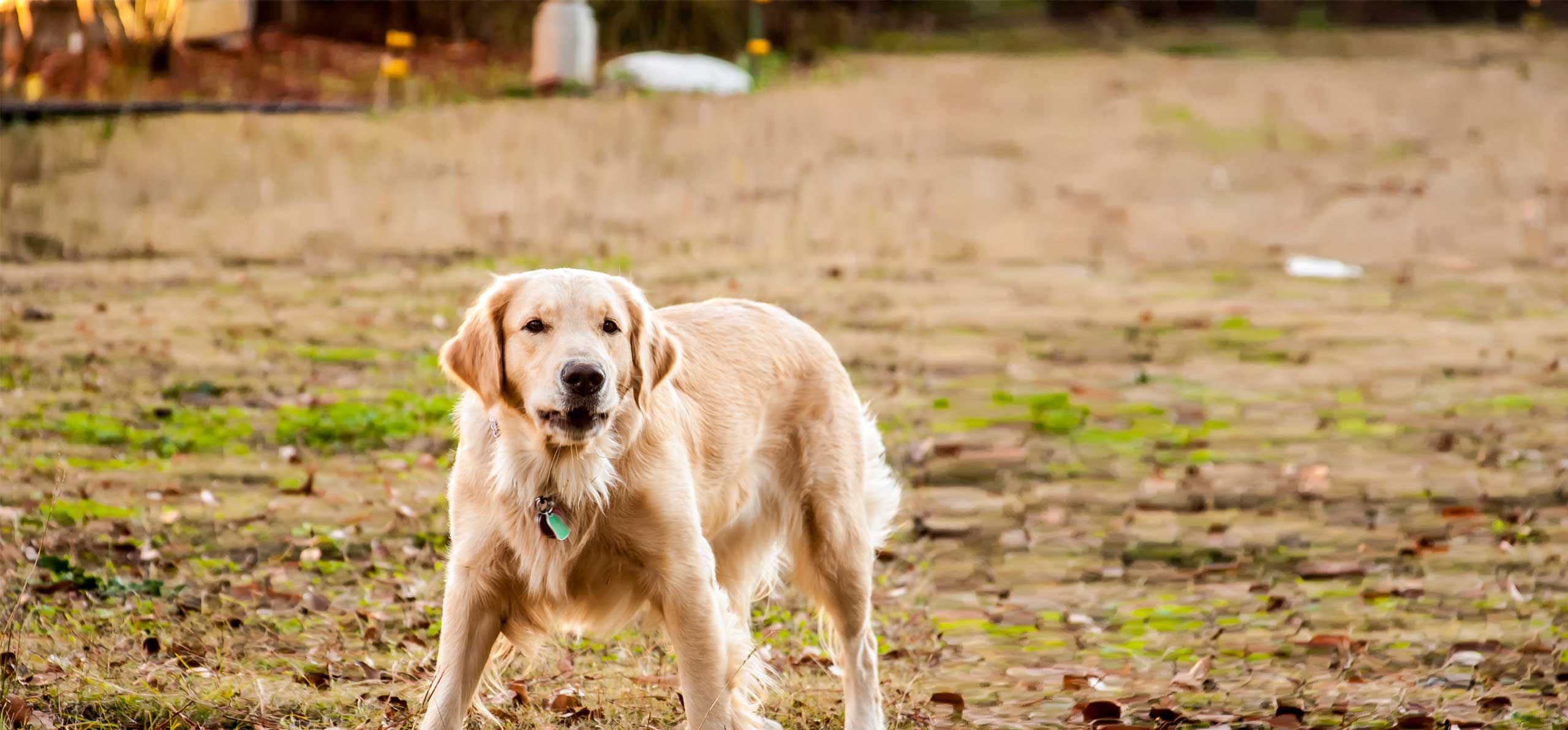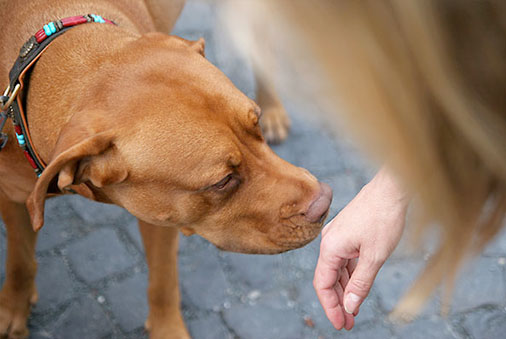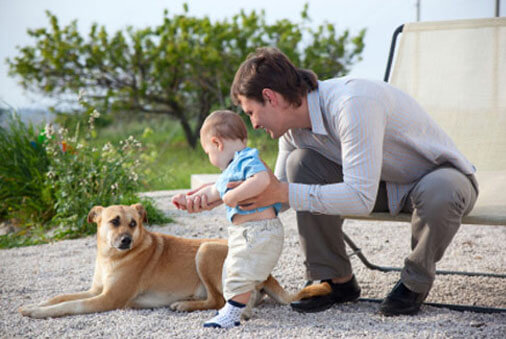Not so fast. You can’t always judge a dog by its cover. Even though canines frequently try to communicate when they’re agitated, anxious or just plain scared, dogs are sometimes misunderstood.
A wagging tail doesn’t always mean a happy dog: Slow wags can mean he’s nervous. If his tail moves freely and energetically, then he’s probably friendly.
Let sitting dogs lie
People often praise a “good” dog for being well behaved because he seems to be in a peaceful repose. New pet parents can easily mistake stillness for calmness, but their dog might actually be frozen with fear.
Yawning is another ambiguous behavior. Sure, it might mean the pooch is pooped from a long walk but, if the dog hasn’t exercised recently, it could mean he’s anxious.
Fearful, nervous dogs should be avoided until the stressful situation has subsided and they’re docile again. It takes expert training to learn how to handle agitated dogs and, even then, only with extreme caution.
Back rolls. Back off?
When a dog rolls over on his back it often means he’s passive and trusts you completely. Translation: “Rub belly, please.”
Except when his body is stiff. That’s when the rollover can mean he’s nervous and needs reassurance, not belly rubs. Aggressive dogs might even trick you by rolling over and appearing submissive until you try to pet them and then they snap at you.
Watch for stiff legs and a head cocked to one side, translation: “Don’t touch me!”
Even if he’s behaving like Joe Cool, never pet an unfamiliar dog until you’ve asked his pet parent for permission. It’s best to avoid touching unknown dogs altogether until they’re familiar with your scent.
Above all, observe a dog’s body language in context with his surroundings. Be sure to scan other doggie parts, besides tails, to get a full read of their real emotional state.
Eyes and ears
A dog who stares you down, or makes direct eye contact with you, could be aggressive. However, if he’s in unfamiliar territory, and you’re his pet parent, he may be looking at you for direction.
Conversely, lack of eye contact may mean the dog is too fearful to look at something. Eyes straight ahead and ears back? Translation: He’s frightened.
Baring teeth
Whether they’re yellow or more pearly white (from eating all those dental chews?) bared canines combined with other signs of anxiety indicates hostility.
If the rest of the dog’s body is relaxed, and his surroundings are calm, he might just be showing his teeth because he’s panting from heat or he’s happy (maybe even smiling).
Fur’s gonna fly
If you didn’t say “Gimme paw,” and your dog raises a front paw, he’s probably unsure of himself so proceed with caution.
When there’s no snow or ice around and your dog shakes, he’s most likely frightened. Shaking is pretty common during loud thunderstorms and firework displays. Of course, if a dog’s fur bristles and he growls, beware: He’s angry!
Subtle “sic ’ems”
Bared teeth, flattened ears, bristling fur, and growling are all obvious signs a dog is distressed and might strike out. Watch for subtle signs, too: If a dog inches away or turns his head from you, that could also mean he’s not going to play nice.
Remember, growling doesn’t always precede an attack, especially if dogs associate that behavior with punishment. Consequently, when training them, it’s a good idea not to discourage growling, the universal red flag for definitively warning people when dogs are upset.
Of course, with all the love and affection your dog receives from family and friends, he’s probably baring his canines (smiling) and rolling on his back (rub me!) right now. What are you waiting for? Pet away!
You may want to read: No Bites! How to Avoid Getting Bitten
Quick Tips
- Ears straight back? He’s probably nervous, afraid
- Raised front paw? He’s unsure, confused
- Eyes wide open? He’s frightened
- Stiff legs? Nervous, proceed with caution
- Bristled fur? Aggression ahead
- Growling with bared teeth? Need I say more?



